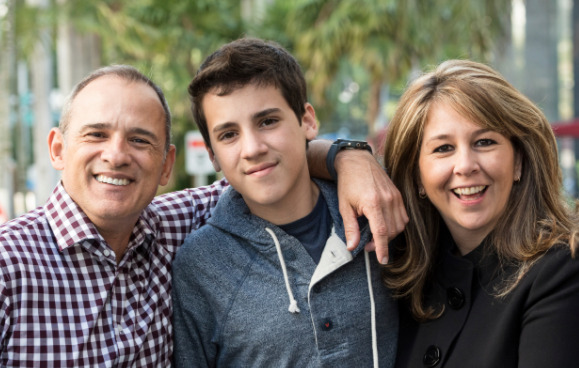Drug use in this country is on the rise. Approximately 1 in 10 adults are now addicts. With the growing opioid crisis and the decades-long illegal street drug epidemic, deaths from drug overdose have more than tripled since 1990. For the parents of adult addicts, the best way to communicate and to be a supportive role in your adult child’s recovery is not always obvious. Your child is now grown and able to make their own decisions. However, to ensure your addicted adult child has the highest chances of recovery, it is important to take certain steps and avoid common pitfalls.
Do Communicate Your Concern with Compassion
The initial conversations parents have with their adult children regarding drug use/addiction may be met with some reluctance to admit there is a problem. However, the tone and precedent that is set at the beginning of this process will serve as the building blocks of trust and honestly that help establish open communication going forward. Research shows that young adults who receive more compassion and social support during their active addiction are more likely to enroll in treatment centers.
Don’t Pretend Everything is Fine
It may seem easier to avoid the topic altogether or to make excuses for an adult addicted child, but doing so might inadvertently help to normalize a problem that by nature grows stronger the longer it goes unchecked. When they are ignored, drug habits easily become drug addictions which invariably affect the mental, physical and financial long term health of those individuals suffering from them. The sooner parents are able to express their concerns, the better the chance of recovery.
Do Set Boundaries
In the process of expressing their concerns, it is prudent for parents of adult addicts to clarify what is expected as well as what won’t be tolerated. By establishing these boundaries, a precedent is set and can be referred to if the addicted adult child’s behavior is unacceptable. Through this type of non-judgmental communication, parents can begin to express how their addicted children’s behavior has affected them and others that care about them.
Don’t Criticize Your Child for being Addicted
People with addictions generally have an awareness regarding their situation. This can be a sensitive subject as it is common for addicts to experience shame and feel trapped in the vicious cycle of dependency and addiction. This is a vulnerable position for anyone to find themself in and what he or she needs is understanding and emotional support. It is wise to avoid making an addict feel defensive or ashamed, for this can lead to further alienation which can fuel the addiction itself.
Do Offer to Explore Support Services Together
It can be encouraging when the parent of an addict is happy to look into different support services with their adult children and help them decide what might best meet their needs. There are many types of treatment programs and support groups available. Doing a little research together can be a huge help in finding a good match.
Don’t Enable by Giving Money
It may seem like you’re helping them get on their feet by offering them money but by giving it to your addicted adult child can enable them and make them dependent, and there may be less incentive for them to overcome their addiction and regain their own life skills and sense of independence. Money can also be used to buy drugs. If you want to help, consider buying them groceries instead.
Do Ask how You can Best be of Service
By asking your adult child how they would feel the most supported, you are showing that you are available to help, but also that you respect them and their boundaries and that you don’t always have all the answers either. This can help build trust and encourage them to share their feelings with you. Allowing them to take the lead and have a say in things is a great way to honor them and the progress they are working so hard to make.
Don’t Scrutinize their Every Move
Although it is healthy to check-in and has frequent conversations about how they are doing, it’s not a good idea to constantly watch over them and give the impression that you don’t trust them to improve their own situation. It would be detrimental to their recovery if you put them on the spot, repeatedly bringing up the addiction that they are trying to overcome.
Do Seek Support for Yourself
The pressure we put on ourselves to help with our adult children’s drug addiction problems is intense and we can frequently get involved to the point that we neglect our own personal needs. One risk factor is that if you are constantly worrying about someone else and ignoring your wellbeing in the process, you can start to resent the person that you are trying to help. It is important to find your own forms of support during this challenging time as well.
Don’t Go it Alone
While you are fighting the good fight, it is essential to carve out time for yourself and to talk to others who have experience in this area. If you feel sad, fatigued, stressed, and overwhelmed, it is recommended to reach out to loved ones, support groups, and even consider therapy. There is much research and guidance in the field of recovery for the loved ones of those suffering from debilitating addictions. You will likely need support yourself and the good news is that it exists for you as well. For more information regarding helping your addicted adult child, please reach out to Design for Recovery today!





